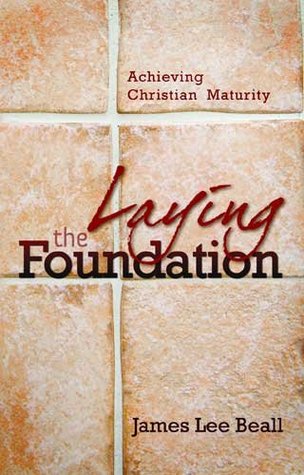Kindle Notes & Highlights
For I know that in me (that is, in my flesh,) dwelleth no good thing: for to will is present with me; but how to perform that which is good I find not (Romans 7:18).
D. God has found no one righte...
This highlight has been truncated due to consecutive passage length restrictions.
equally in need of the gift of ri...
This highlight has been truncated due to consecutive passage length restrictions.
E. The law makes us aware of our sin and declares our guilt as legal fact.
2. How Does God Restore Man to Right Standing?
All through the Old Testament, God prepared His people for His provision of Christ for justification.
3. How Can God Be Just and Justify Sinners?
An important part of God’s own righteousness is His consistency in dealing with His creatures.
His law is the expression of His own personal character—the revelation of His perfect holiness. He is not somehow above and outside the law, for the law is simply the judicial or legal manifestation of what He is. God can never change or deny himself.
A. The law demands the shedding of blood
(death) in payment...
This highlight has been truncated due to consecutive passage length restrictions.
God decreed that since the life is in the blood (Leviticus 17:11), payment for sin would be the shedding of blood.
B. Peace with God is only possible when His personal wrath is appeased.
Sin is not simply a legal matter, it is a personal insult to God.
C. Justification means that we are legally declared in right standing with God.
Justification is God’s legal action to reconcile sinners to himself.
God is now free to restore man to right standing on the basis of what Christ has done in his stead.
(1) We are restored to friendship with God.
(2) We stand legally declared righteous.
4. What Is Imputation of Righteousness?
Imputation refers to a system of divine bookkeeping by which sin or righteousness may be transferred from one person’s account to another’s.
When God justifies us through our faith in Christ, He does not impute or account or reckon our sins to us any longer, but ...
This highlight has been truncated due to consecutive passage length restrictions.
5. What Is the Righteousness of God?
The righteousness of God is first of all His own character: it includes both His internal consistency and His fairness or justice in all His dealings.
Secondly, this righteousness is applied to man as “right standing” with God in terms ...
This highlight has been truncated due to consecutive passage length restrictions.
Righteousness is a gift of God to man received by faith; it clothes him like a garment making him acceptable in God’s sight, while God works on the inside by the Holy Spirit to change his character until he too is right and fair in all his dealings.
A. God himself becomes our righteousness.
B. The gift of righteousness is the gift of Christ himself to us.
C. The righteousness of God describes our change of position in relation to God.
We have right standing with God on one basis only: we are “in Christ.”
But what things were gain to me, those I counted loss for Christ. Yea doubtless, and I count all things but loss for the excellency of the knowledge of Christ Jesus my Lord: for whom I have suffered the loss of all things, and do count them but dung, that I may win Christ. And be found in him, not having mine own righteousness, which is of the law, but that which is through the faith of Christ, the righteousness which is of God by faith (Philippians 3:7-9).
D. Righteousness is imputed to us by justification, imparted in sanctification.
Laying the foundation stone of faith toward God means accepting the impute...
This highlight has been truncated due to consecutive passage length restrictions.
He must first apply the blood to us before He can move in to remake us by the Holy Spirit.
This gradual process of conforming us to His likeness in character is called sanctification.
It is done as we cooperate in a continuing faith. Little by little God gives himself to us ...
This highlight has been truncated due to consecutive passage length restrictions.
Assurance is a subjective experience, an inner sure-ness resulting from the exercise of faith. Justification is a judicial decree or declaration of God.
Justification is the exact opposite of condemnation; it is God’s acquittal.
A. Justification eliminates any legitimate source of condemnation.
B. Justification changes our position in relation to God.
C. Justification includes forgiveness of sins on the basis of the penalty already paid by Christ.
2. What Is God’s Forgiveness?
Forgiveness is closely related to justification. God takes the initiative in forgiving us of all sin and iniquity, apart from anything we can do to merit this forgiveness. It is given freely as grace.
Forgiveness does not mean, as so many seem to think, that penalty is set aside. To the contrary, in both the old and New Testaments, forgiveness follows the payment of penalty as prescribed.
...as he did with the bullock for a sin offering, so shall he do with this: and the priest shall make atonement/or them, and it shall be forgiven them (Leviticus 4:20).
The central purpose of God’s forgiveness is to restore His fellowship with man.
3. By What Means Were We Justified?
A. By grace (unmerited favor).


